Facebook Zero
Facebook Zero is an initiative undertaken by social networking service company Facebook in collaboration with mobile phone-based Internet providers, whereby the providers waive data (bandwidth) charges (also known as zero-rate) for accessing Facebook on phones via a stripped-down text-only version of its mobile website, located at 0.facebook.com or zero.facebook.com (as opposed to the ordinary mobile website m.facebook.com that also loads pictures). The stripped-down version is available online only through providers who have entered the agreement with Facebook.[1][2][3][4] Photos are not loaded by default. Users may still choose to view them by clicking through but regular data charges apply to photo use.
History
Plans for Facebook Zero were first announced at the Mobile World Congress in February 2010 by Chamath Palihapitiya.[5]
It was officially launched on May 18, 2010 in collaboration with 50 mobile operators around the world.[1]
Carriers
Several carriers offer Facebook Zero.[1]
-
 Bangladesh: Grameenphone
Bangladesh: Grameenphone -
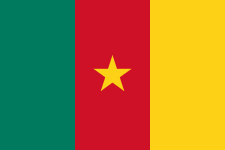 Cameroon: MTN Group
Cameroon: MTN Group -
 Canada: Wind Mobile
Canada: Wind Mobile -
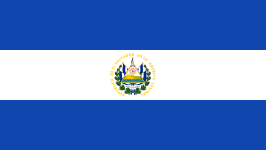 El Salvador: Movistar
El Salvador: Movistar -
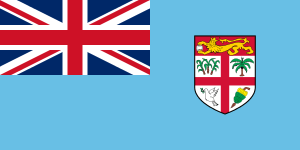 Fiji: Digicel
Fiji: Digicel -
 France: SFR
France: SFR -
 Germany: E-Plus[6]
Germany: E-Plus[6] -
 Greece: Cosmote;[7] Vodafone Greece;[8] WIND Hellas[9]
Greece: Cosmote;[7] Vodafone Greece;[8] WIND Hellas[9] -
 Georgia: MagtiCom
Georgia: MagtiCom -
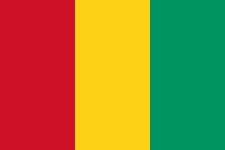 Guinea: MTN Group
Guinea: MTN Group -
 Indonesia: XL Axiata
Indonesia: XL Axiata -
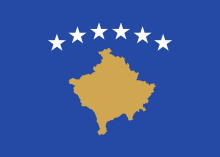 Kosovo: iPKO
Kosovo: iPKO -
 Malaysia: DiGi
Malaysia: DiGi -
 Morocco: Maroc Telecom; Méditel; Inwi
Morocco: Maroc Telecom; Méditel; Inwi -
 Myanmar: Telenor
Myanmar: Telenor -
 New Zealand: 2degrees;[3] Spark New Zealand
New Zealand: 2degrees;[3] Spark New Zealand -
 Pakistan: Mobilink; Telenor Pakistan
Pakistan: Mobilink; Telenor Pakistan -
 Panama: Cable & Wireless Communications
Panama: Cable & Wireless Communications -
 Philippines: Smart[10]
Philippines: Smart[10] -
 Poland: Play[11]
Poland: Play[11] -
 Qatar: Vodafone Qatar
Qatar: Vodafone Qatar -
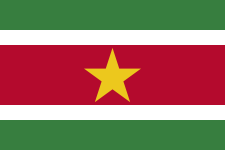 Suriname: Digicel
Suriname: Digicel -
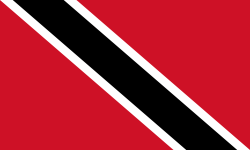 Trinidad and Tobago: Digicel
Trinidad and Tobago: Digicel -
 Tunisia: Ooredoo, Tunisie Télécom, Orange
Tunisia: Ooredoo, Tunisie Télécom, Orange -
 United Kingdom: 3
United Kingdom: 3 -
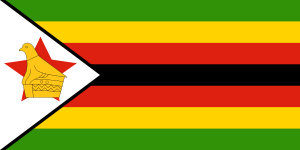 Zimbabwe: Telecel Zimbabwe
Zimbabwe: Telecel Zimbabwe
Reception and impact
An article by Christopher Mims in Quartz in September 2012 stated that Facebook Zero played a very important role in Facebook's expansion in Africa over the 18 months following the release of Facebook Zero, noting that data charges could be a significant component of mobile usage cost and the waiving of these charges reduced a significant disincentive for people in Africa to use Facebook.[12]
Facebook Zero was also credited as the inspiration for a similar initiative undertaken by Wikipedia titled Wikipedia Zero.[13][14][15]
Google Free Zone, a similar service launched by Google in November 2012, was viewed by Internet commentators as both inspired by and a potential challenge to Facebook Zero.[16][17][18][19]
The Subsecretaria de Telecomunicaciones of Chile ruled that Zero-rating services like Wikipedia Zero, Facebook Zero, and Google Free Zone, that subsidize mobile data usage, violate net neutrality laws and had to end the practise by June 1, 2014.[20][21]
In 2015, researchers evaluating how Facebook Zero shapes ICT use in the developing world found that 11% of Indonesians who said they used Facebook also said they did not use the Internet. 65% of Nigerians, 61% of Indonesians, and 58% of Indians agree with the statement that "Facebook is the Internet" compared with only 5% in the US.[22]
Alternative meaning of "Facebook Zero" (marketing)
In 2014, Social@Ogilvy, a division of the advertising agency Ogilvy & Mather, published a white paper—unrelated to the mobile pricing program—titled "Facebook Zero: Considering Life After the Demise of Organic Reach,"[23] analyzing Facebook's widely observed[24][25][26] restriction of content published from businesses' and brands' Pages. The "Zero" refers to the projected percentage of any given Page's followers who are able to see posts from that Page in their personal News Feeds. The paper's author observes that adjustments in Facebook algorithms have reduced organic reach for non-paying business pages (that have at least 500,000 "Likes") from 16 percent in 2012 down to 2 percent in February 2014. Ogilvy's use of the term "Facebook Zero" was subsequently reported or outright adopted by marketing and tech industry observers and reporters.[27][28][29][30]
See also
References
- ↑ 1.0 1.1 1.2 Murlidhar, Sid (May 18, 2010). "Fast and Free Facebook Mobile Access with 0.facebook.com". Facebook. Retrieved January 15, 2014.
- ↑ "Facebook". MTN. Retrieved January 15, 2014.
- ↑ 3.0 3.1 "Facebook Zero - free on 2degrees!". 2degrees. Retrieved January 15, 2014.
- ↑ "Facebook Zero!". GrameenPhone. Retrieved January 15, 2014.
- ↑ Wauters, Robin (February 16, 2010). "Facebook Launches Zero, A Text-Only Mobile Site For Carriers". TechCrunch. Retrieved January 15, 2014.
- ↑ "E-Plus Gruppe: Kostenloser Zugang zu Facebook".
- ↑ "Cosmote 0.Facebook".
- ↑ "Vodafone Greece 0.Facebook".
- ↑ "WIND Hellas 0.Facebook".
- ↑ Consulji, Bianca (November 1, 2013). "Facebook Rolls Out Zero Data Charge Access in the Philippines". Mashable. Retrieved January 15, 2014.
- ↑ "Facebook za ZERO bez reklam".
- ↑ Mims, Christopher (September 24, 2012). "Facebook’s plan to find its next billion users: convince them the internet and Facebook are the same". Quartz. Retrieved January 15, 2014.
- ↑ "Mobile partnerships". Wikimedia Foundation. Retrieved January 15, 2014.
- ↑ Brian, Matt (May 27, 2012). "Wikipedia Zero expands into Asia, drops mobile data charges for 10m subscribers in Malaysia". The Next Web. Retrieved January 15, 2014.
- ↑ Dillon, Conon (December 18, 2013). "Wikipedia Zero: free data if you can afford it". Retrieved January 15, 2014.
- ↑ "Google Free Zone". Google Operating System blog (not affiliated with Google). October 25, 2012. Retrieved January 15, 2014.
- ↑ Knowles, Jamillah (November 8, 2012). "The Phillipines gets Facebook Zero-style free mobile access to Google services via Globe Telecom". Retrieved January 15, 2014.
- ↑ Jana (December 3, 2012). "Google Free Zone: Google’s Challenge to Facebook Zero". Retrieved January 15, 2014.
- ↑ Deibert, April (February 19, 2013). "Google ‘Free Zone’ and Facebook ‘Zero’: Products Targeting Developing Populations". Innovation Series. Retrieved January 15, 2014.
- ↑ Mirani, Leo (May 30, 2014). "Less than zero – When net neutrality backfires: Chile just killed free access to Wikipedia and Facebook". Quartz. Retrieved July 2, 2014.
- ↑ McKenzie, Jessica (June 2, 2014). "Face Off in Chile: Net Neutrality v. Human Right to Facebook & Wikipedia". Retrieved July 2, 2014.
- ↑ Leo Mirani (9 Feb 2015). "Millions of Facebook users have no idea they’re using the internet".
- ↑ Manson, Marshall (March 6, 2014). "Facebook Zero: Considering Life After the Demise of Organic Reach". Ogilvy & Mather/Social@Ogilvy. Retrieved April 17, 2014.
- ↑ Oremus, Will (March 24, 2014). "Facebook's Like Affair With Brands Is Over". Slate (magazine). Retrieved April 17, 2014.
- ↑ McDermott, John (February 28, 2014). "Facebook is not making friends on Madison Avenue". DigiDay. Retrieved April 17, 2014.
- ↑ Biddle, Sam (March 19, 2014). "Facebook is Ending the Free Ride". Gawker Media/Valleywag. Retrieved April 17, 2014.
- ↑ Spence, Ewan (March 6, 2014). "The Approaching Demise Of Organic Reach In Facebook". Forbes. Retrieved April 17, 2014.
- ↑ Kapko, Matt (April 4, 2014). "Facebook's Declining Organic Reach a 'Real Nightmare' for Marketers". CIO magazine. Retrieved April 17, 2014.
- ↑ Delo, Cotton (March 6, 2014). "Brands' Organic Facebook Reach Has Crashed Since October: Study". Advertising Age. Retrieved April 17, 2014.
- ↑ Tso, Richard (April 14, 2014). "Why Facebook’s Move to End Organic Search Isn’t Surprising". Wired (website). Retrieved April 17, 2014.